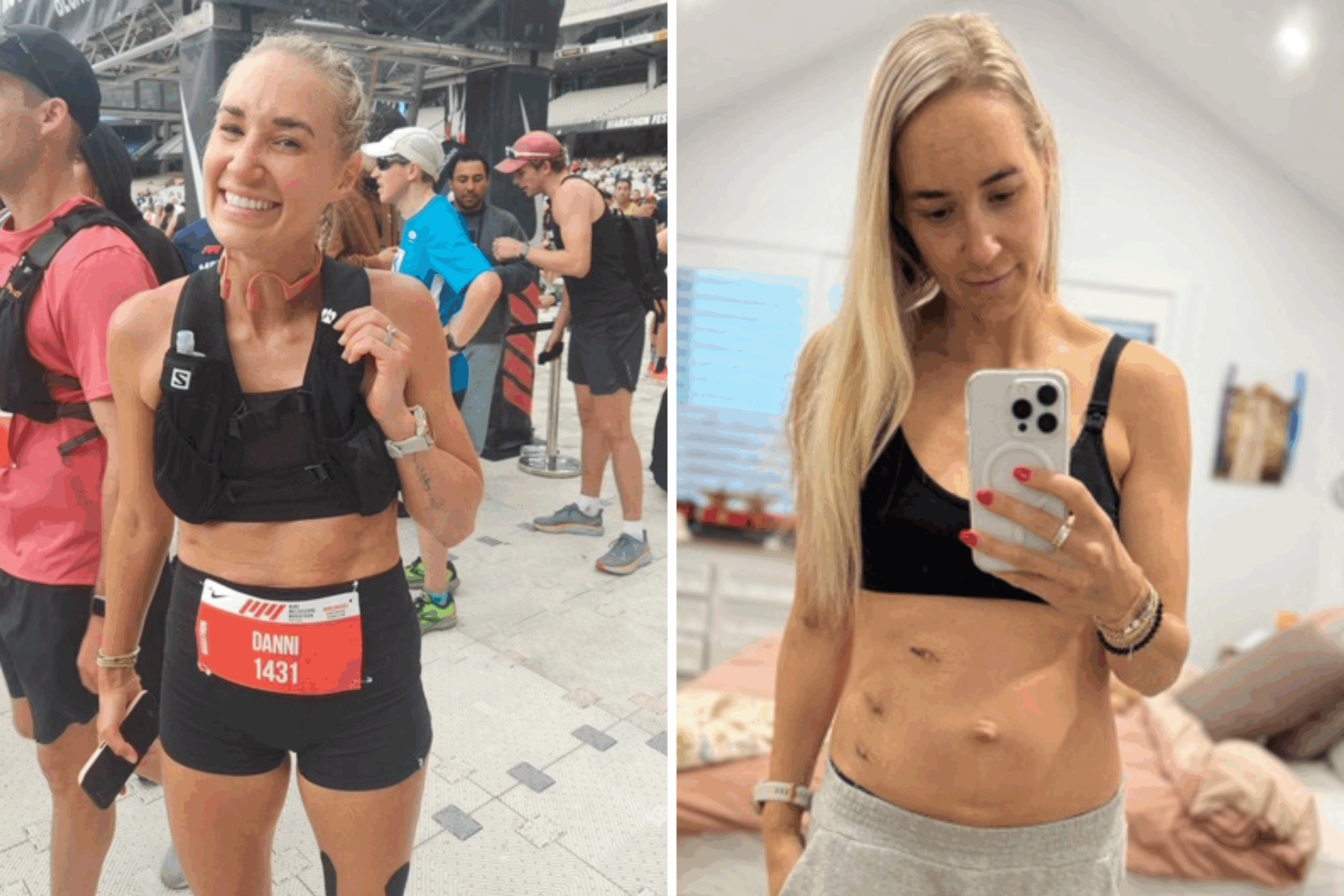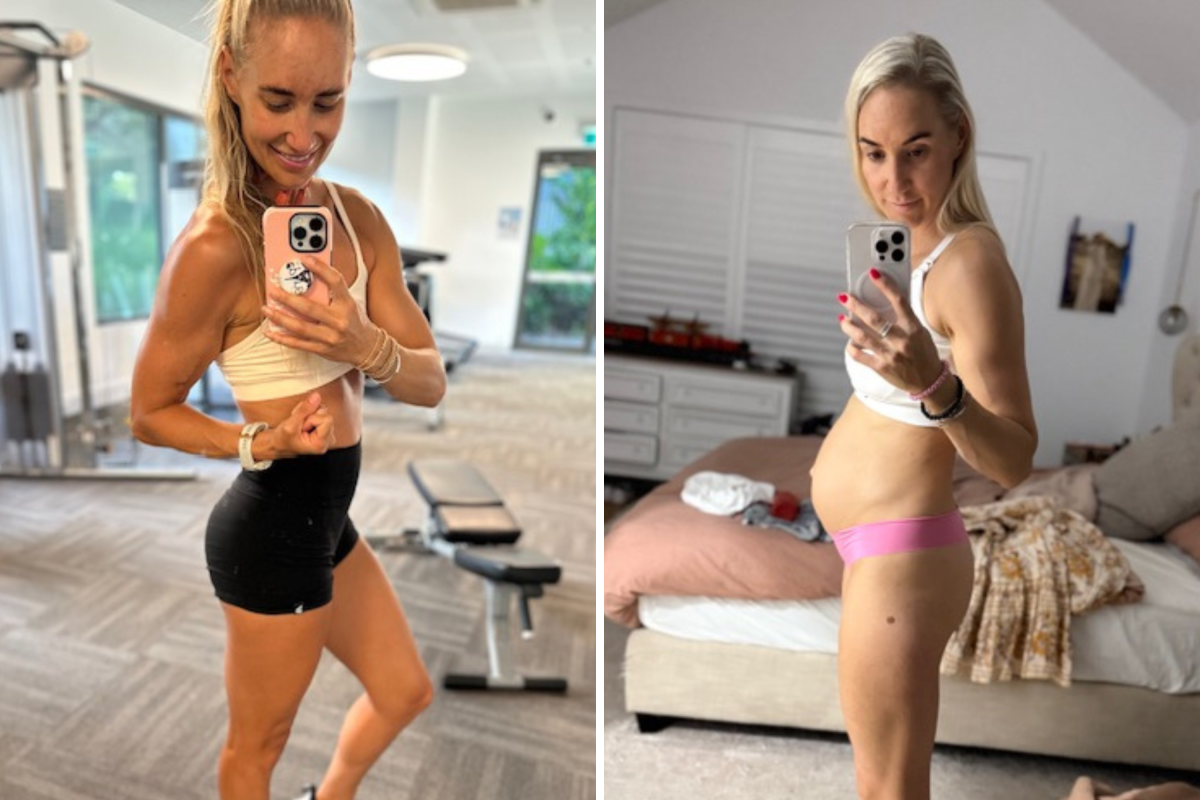
A millennial woman has shared an important message for parents after being diagnosed with bowel cancer at 39.
When Danni Duncan was unable to complete a marathon earlier this year and was struggling to work out in the gym, she knew something was wrong. Alongside this, she began bloating and her stomach began to resemble a pregnancy bump.
The fitness and nutrition coach almost fainted, so decided to see a doctor—but never expected to hear the words “cancer.” She told Newsweek: “I was in complete shock. I’m so fit and healthy and care so much about my health. I couldn’t believe that this was happening to me. How was it possible?”
On June 5, Duncan, a mom of four living in Melbourne, Australia, shared a snippet from her podcast @thefigure_ that quickly went viral, gathering 909,000 views. During the video, she tells listeners: “Why this has been brewing since I was a child.”
Dani Duncan
Research has shown that a high intake of ultra-processed foods is linked to an increased risk of colorectal cancer, particularly among men. However, this type of food hasn’t been a part of Duncan’s diet for over a decade, though it was during her upbringing.
“This is not genetic. This is obviously not lifestyle,” she says during the video, and then states how polyps—abnormal growths in the colon—can take 10 to 15 years to progress into cancer.
Duncan told Newsweek she grew up during a time when ultra-processed foods were becoming increasingly popular, with marketing heavily focused on convenience for busy parents. Breakfast often consisted of sugary cereals and white bread, while lunch was typically something like chicken patties.
Dinners frequently included fast food or frozen pizzas. Although her family did have traditional meals with meat and three vegetables most nights, along with some fruit and the occasional homemade treat prepared by her mom, her overall memories of childhood are dominated by the presence of highly processed foods.

Dani Duncan
She said: “Over the last 10–12 years, I’ve made conscious changes in my nutrition, especially after I gave birth to my daughter Harper, six years ago.
“We now eat 90 percent whole foods, vegetables, fruits, legumes, whole grains. I don’t buy packaged snacks—I make them all. I make our bread, my alcohol intake has drastically reduced, and I only drink green tea or water otherwise.”
She concludes the clip: “It does matter what you feed your kids. Stop feeding your kids things that are not good for them.”
In another clip, she explains how the stage two cancer has been found in her lymph channel and reiterates that the cause was from environmental factors growing up.
She says: “We need to do better as parents.”
Newsweek spoke to Veda Giri, the director of the Cancer Genetics and Prevention Program at Yale Cancer Center, about the rise in cancers in young people.
She said: “Factors such as increasing incidence of obesity, sedentary lifestyle, physical activity, as well as changes in environmental exposures through the generations are important leads into the rise of early-onset cancers.
“It is critical to address known cancer risk factors, such as smoking, excessive alcohol intake, and chewing tobacco, and limit exposure to these factors.”
Giri, based in New Haven, Connecticut, listed the following symptoms for colon cancer:
- Abdominal pain
- Unresolved constipation
- Change in bowel habits
- Blood in the stools
Duncan told Newsweek about her symptoms. She said: “I was also weirdly bloated—I looked about 20 weeks pregnant.
“It turned out I was highly anemic and bleeding from somewhere, and because I was breastfeeding and not having a period, they weren’t sure where the blood loss was coming from.”
She also suffered from fatigue and dizziness. A colonoscopy discovered a 1.7 x 2 cm malignant tumor that had ulcerated and was bleeding, and had gone through the bowel wall.
She added: “I hadn’t noticed the blood because it was at the top of my colon, so by the time it got to my rectum, it was mixed with my stool.”
She was diagnosed on May 15 and has undergone a surgical procedure to remove the right side of the large intestine (colon), called a hemicolectomy. She will also endure three months of chemotherapy at the end of June.
Duncan is sharing her story to not only make parents think twice about what they’re feeding their kids but to encourage doctor appointments.
She said: “If you have any symptoms at all, please go and get checked immediately—even if you don’t have common symptoms.
“If you feel something is off, if you’re worried—your GP should be worried.
“For me, I didn’t have the classic bowel cancer symptoms. If I wasn’t so active, I could have easily passed this off as being a tired mom of four.”
